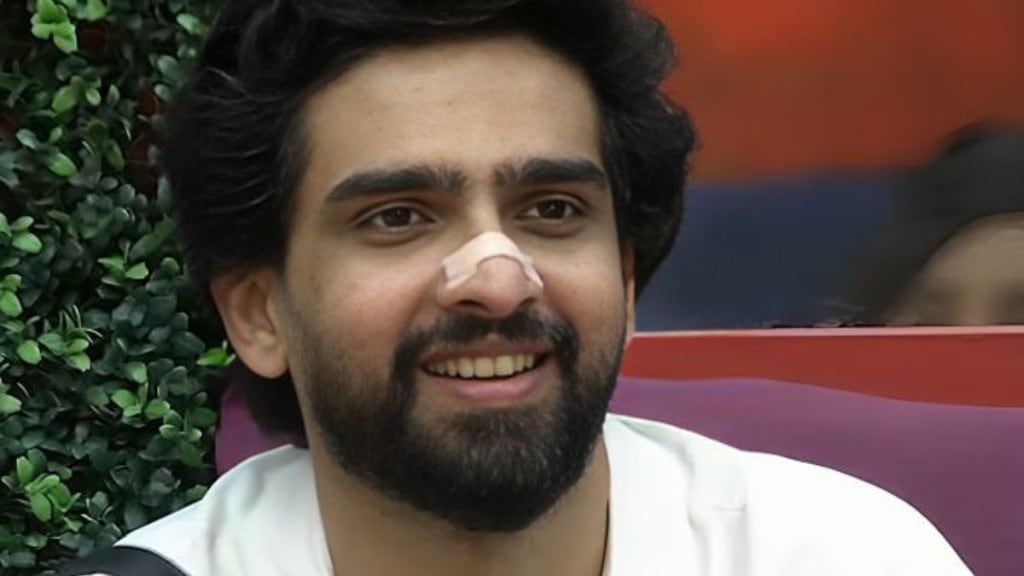Singer and composer Amaal Mallik recently opened up about a serious sleep-related medical condition while participating in the popular reality show Bigg Boss 19. Known for its drama and celebrity conversations, Amaal Mallik’s honest confession surprised both his fellow contestants and the viewers.
During a conversation with actor Gaurav Khanna inside the Bigg Boss house, Mallik revealed that he suffers from sleep apnea, a condition that causes his breathing to stop intermittently during sleep. He explained that he relies on a CPAP (Continuous Positive Airway Pressure) device at night to breathe comfortably, which helps him breathe by keeping his airway open.
“I snore. I have sleep apnea. I choke. In one minute, I am not breathing for 15-20 seconds while asleep. I tend to choke, and it can be threatening,” Mallik shared, describing how the disorder affects his sleep and overall well-being.
What is sleep apnea?
Dr Harish Chafle, senior consultant chest physician and sleep disorders specialist at Gleneagles Hospitals, Mumbai, told The Indian Express that sleep apnea occurs when a person’s breathing repeatedly stops and starts during sleep.
“In obstructive sleep apnea (OSA), the throat muscles relax too much and block the airway, causing pauses in breathing that can last 15-20 seconds or more. The body senses the lack of oxygen, and the person may choke, gasp, or wake up suddenly,” Dr Chafle told The Indian Express.
Sleep apnea can be obstructive, central, or mixed/complex, depending on how breathing is affected. It can lead to poor sleep quality, daytime tiredness, morning headaches, difficulty concentrating, and even increased risk of heart problems.
How can sleep apnea be treated?
Dr Chafle shared several lifestyle changes with The Indian Express to manage sleep apnea. This includes maintaining an optimum weight, avoiding alcohol or heavy meals before bedtime, sleeping on the side rather than the back, keeping nasal passages clear, and following a regular sleep routine.
“For those with persistent symptoms like loud snoring, choking in sleep, or excessive daytime sleepiness, consulting a sleep specialist is important,” he said. Many patients, like Mallik, are also prescribed CPAP devices, which deliver continuous air through the nose or mouth to keep airways open during sleep.
Sleep apnea is becoming a global health concern
Sleep apnea is becoming a major health issue worldwide, affecting millions across all age groups. Rising obesity rates and sedentary lifestyles have contributed to its increase.
According to a 2019 global study in The Lancet Respiratory Medicine, about 936 million adults aged 30-69 have mild-to-severe obstructive sleep apnea, with around 425 million experiencing moderate-to-severe forms. In the United States, over 30 million people are estimated to live with the condition.
Common symptoms include loud snoring, gasping, and choking during sleep, leaving sufferers extremely tired during the day.
Shankh blowing could help reduce sleep apnea symptoms
A new study in India suggests that blowing into a conch shell (shankh) could help tackle sleep apnea symptoms. The technique involves taking deep breaths and blowing strongly into a spiral-shaped conch shell, which may strengthen throat and soft palate muscles that often collapse during sleep.
Dr Krishna K Sharma of the Eternal Heart Care Centre in Jaipur tested the method on 30 adults with obstructive sleep apnea. Half of the participants practiced shankh blowing for 15 minutes a day, five days a week, for six months, while the other half did regular deep-breathing exercises.
Participants who practiced shankh blowing reported being 34 per cent less sleepy during the day, had higher blood oxygen levels at night, and experienced four to five fewer apnea episodes per hour on average.
“The way the shankh is blown creates strong vibrations and airflow resistance, which likely strengthens upper airway muscles,” Dr Sharma said. “These muscles often relax and collapse during sleep in people with OSA, causing breathing to stop.”
Word of caution
Obstructive sleep apnea is a long-term condition that can seriously affect quality of life if left untreated. Hence, it’s advised to seek professional help as soon as you experience any symptom.
Experts caution that the study was small and more research is needed. Dr Erika Kennington, head of research and innovation at Asthma + Lung UK, said, “It’s too soon to say for certain that conch blowing can help people manage sleep apnea. Larger trials are needed, and it should be compared with other proven strategies like reducing alcohol intake, staying active, and maintaining good sleep habits.”

